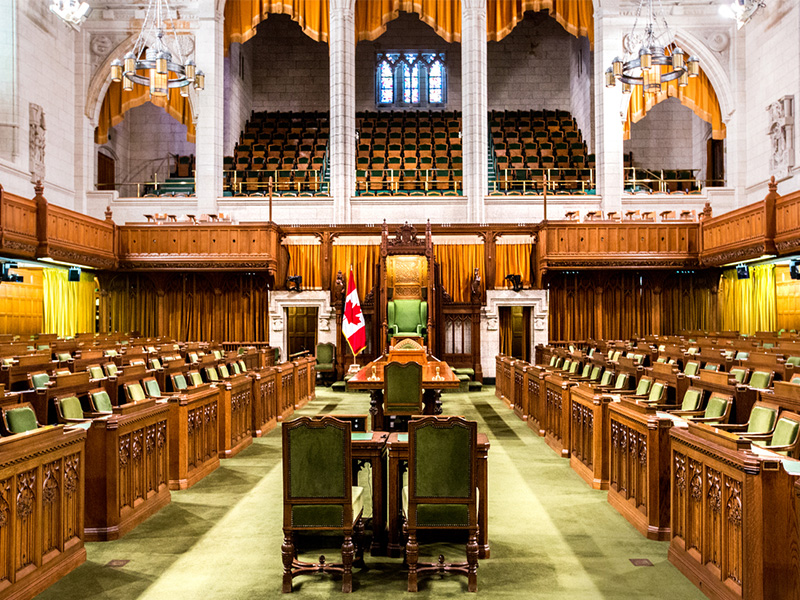
Industry associations are calling on the government to review the Canadian tax regime, arguing that increasingly complicated tax rules are discouraging entrepreneurship and hampering growth.
Groups such as the Investment Industry Association of Canada (IIAC), CPA Canada, Canadian Chamber of Commerce (CCOC) and the Conference for Advanced Life Underwriting (CALU) say waves of recent tax changes, such as the proposed hike in the capital gains inclusion rate (CGIR), are increasing compliance costs and creating greater uncertainty for businesses.
The recommendations were within the groups’ submissions to the Department of Finance’s 2025 pre-budget consultation, which closed last month.
“As a small business owner today, it’s hard to do anything without bringing in a tax lawyer and an accountant to confirm that what you’re doing will not create tax issues [down the line],” said Kevin Wark, tax advisor with CALU, in an interview.
For example, he said the benefits of the new family business transfer rules can be lost if the owner implements the complicated rules incorrectly.
The proposed hike in the CGIR to two-thirds from half became effective on June 25, but the change has yet to be passed into law, said John Oakey, vice-president of taxation for CPA Canada, in an interview.
“How do we plan for what we’re doing when we have no idea what’s actually going to happen?” Oakey said.
The proposed change also presents administrative challenges, Oakey said. For example, a corporation with a June 30 year end that realized a capital gain or loss on June 27, 2024, would have difficulty filing a tax return ahead of its six-month filing deadline if it chose to do so.
“The [tax fililng] software is not ready for it because the CRA is waiting for legislation [to update its forms],” Oakey said.
In July, the CRA told Investment Executive the 2024 version of Schedule 3: Capital Gains (and Losses), the form for individuals, is “still under development as we wait for final legislative details.” The form will be uploaded to the CRA website “by end of January 2025,” the agency said.
CPA Canada’s submission said a “number of significant and complex tax changes” were “adding to an already excessive regulatory and compliance burden on individuals, businesses and tax professionals.”
Said CPA’s Oakey: “The pace is the biggest issue we have — there is so much coming through so fast that the system can’t keep up.”
CALU called on the government to commission an expert panel to review the tax rules governing small businesses. The group argued that tax changes affecting small businesses introduced since 2018, including the expansion of the rules concerning the tax on split income and the introduction of passive investment rules to limit access to the small business deduction, have created “a disincentive to establishing and growing a small business in Canada.”
“There has been a layering effect, over the years, that has now created a [tax] system that we think is somewhat unworkable,” Wark said.
The IIAC also called for “an independent and comprehensive examination of the federal tax system,” arguing for a “simpler tax system that is easier to administer, is fair and efficient, and reduces the potential for revenue shortfalls as economic circumstances change.”
The CCOC said Canada’s tax system had “become a complicated web of carve-outs and caveats, which is undermining growth by chasing away innovation.”
The federal government has not engaged in a comprehensive formal review of the tax system since the Carter Commission of the 1960s.
“The government of Canada is continually reviewing the tax system to ensure that it is fair, efficient and as simple as possible,” said Department of Finance spokesperson Caroline Feggans in an emailed response to questions regarding the complexity of Canada’s tax regime. Feggans did not directly address the question of whether the government would launch a formal review.
The call for tax reform is not coming only from investment industry associations.
In a July 3 episode of the Hub Dialogues podcast, University of Calgary economist Trevor Tombe said he believed “we’re at that moment now where the tax system, both federally and for many provincial governments as well, could use some dramatic improvement.”
“This isn’t just about lowering taxes — think of it as distinct from that,” Tombe said. “[It’s] really addressing the underlying structure to ensure that [the tax system] doesn’t distort economic activity and that whatever amount of revenue that a government wants to raise, it does so in the most economically efficient way possible to really maximize our potential for innovation and investment.”
At the Scotiabank Financials Summit on Sept. 4, Dave McKay, president and CEO of Royal Bank of Canada, said his biggest fear was that “we’re discouraging risk taking” and suggested Canada’s tax system was the issue.
“We need a tax structure that encourages risk taking by everybody — not just entrepreneurs and start-up companies and tech firms, but everybody needs to take risk, and the tax structure needs to do that,” McKay said.
Oakey said he believed a review of Canada’s tax system would occur in stages, given the complexity of the Income Tax Act. Simpler issues might be handled first, while deeper policy questions would need more time for consideration.
“I think the biggest thing we need is commitment,” Oakey said. “We need whatever government is in power to say, ‘We need to have some level of review, we need to do it, and actually make it a priority.’ Until then, we can talk about it all we want.”